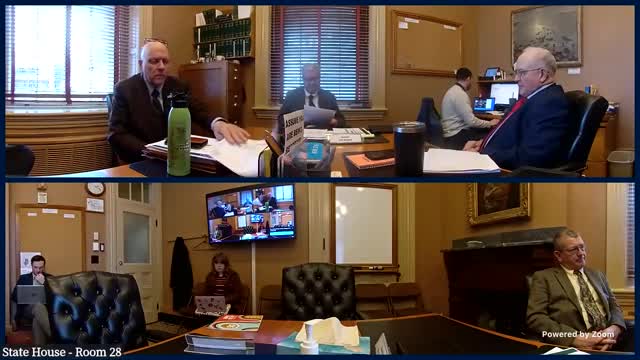Senate Education Committee outlines confirmation process, joint-hearing schedule and short-form bill plan
Get AI-powered insights, summaries, and transcripts
Subscribe
Summary
At a Jan. 17 meeting, the Vermont Senate Education Committee agreed to a system for vetting governor-appointed nominees, assigned oversight responsibility for confirmations, and previewed a forthcoming Senate resolution to allow short-form education-finance bills through May to reduce legislative counsel workload.
The Senate Education Committee met Jan. 17, 2024, to debrief joint hearings with the House, organize how it will handle upcoming nominations to education boards and preview a Senate resolution that would permit short-form bills for education finance through May.
The committee agreed to create a shared matrix of nominees that will include contact information, resumes and suggested briefing questions, and to brief each nominee for roughly three to four minutes before the committee votes on whether to support the nomination. The matrix and draft questions will be circulated to committee members, the chair said during the meeting.
Senator Weeks was assigned responsibility for tracking nominations and confirmations that do not otherwise come directly through the committee. Staff members Beth and Will will help schedule hearings and maintain the matrix; Will was asked to include full calendar times for hearings so members know whether they need to be in the hearing room or at joint sessions.
Names discussed as nominees during the meeting included Melissa Dawson of Putney for the Community High School of Vermont board, Caleb Greenwood of Troy for the State Board of Education, and a nominee identified as James Saunders of Verity for a board of libraries seat. A name transcribed as Linda Sarnaj Jockey of Weston was also mentioned. Where particulars about an individual nominee’s appointment or the full slate were not given in the meeting record, the committee said it would reach out to the governor’s office for details and resumes.
Committee members discussed the process for floor consideration after committee action: noncontentious nominees may be grouped together and sent to the Senate floor as a single list for a consent-style vote; nominees that prompt questions or opposition can be briefed and voted on individually on the floor. The chair said the committee should be prepared in case any nominee becomes “contentious” and that the committee member who contacts a nominee would brief the floor if further debate occurs.
On governance matters, members said they would continue follow-up after a joint hearing with the House to collect “lessons learned” and testimony about how governance changes are playing out in practice. The committee plans to schedule roughly 15–16 topics for upcoming sessions and to use afternoons efficiently by staying in the building until about 5 p.m. on days with joint hearings.
The committee was also told to expect a Senate resolution from the Rules Committee that would permit short-form bills related only to education finance until May. The proposed short-form process, explained to the committee, would allow sponsors to file a bill title and description without a full bill text initially, with the stated goal of reducing the workload on legislative counsel and the Joint Fiscal Office. A senator in the meeting said she was skeptical of short-form bills, describing them as unfamiliar from her experience in the House, but the chair characterized the change as optional for senators and as a way to help counsel manage heavy workloads.
No formal committee votes on nominations or the short-form resolution were recorded in the meeting transcript. The committee directed staff to produce the nominee matrix and to continue scheduling joint hearings and education-related testimony in the coming weeks.
